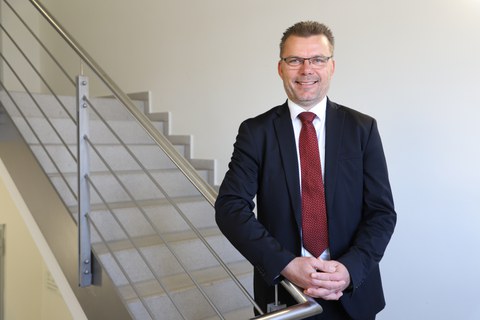Portrait of Professor Weißgärber
Prof. Dr.-Ing. Thomas Weißgärber has been Chair of Powder Metallurgy at the Institute of Materials Science since April 1, 2022, together with membership of the management of the Fraunhofer Institute for Manufacturing Technology and Advanced Materials IFAM.
Without powder metallurgy ... it would be impossible to manufacture shape-complex components with high precision and in large quantities. Certain groups of materials can only be produced using powder metallurgical manufacturing processes, for example friction materials, diamond tools, hard metals or special composite materials. The production of cellular structures is another domain of powder metallurgy. In line with this metallurgical-technical diversity, the range of applications for powder metallurgical components is also exceptionally broad, e.g. in the automotive, aerospace, electrical and mechanical engineering industries.
Being a professor... is a challenging and, with the simultaneous management of the Fraunhofer IFAM, a demanding task with great responsibility. The opportunity to initiate research topics independently and autonomously and to put them into practice is both a motivation and an incentive. For me, however, it also means imparting sound knowledge and enthusiasm for the subject area to young people, encouraging them to be creative and determined and always being on hand to offer advice.
Students ... should prepare themselves for their future life and career with commitment, perseverance and diligence and learn to make independent decisions. At the same time, they should enjoy the freedom offered by their studies, but also make good use of it and always be open to new ideas. Perseverance, persistence and ambition are virtues that are important for studying.
In the future ... the fascinating possibilities of material design and the powder metallurgical production of shape-complex components, especially with the innovations of sinter-based additive manufacturing, will make significant contributions to the challenges of the energy transition and the mobility transition. Examples can be found in the fields of energy technology, especially hydrogen technology, aerospace technology and alternative drive technologies in vehicles. Interdisciplinary cooperation is important.
If I could study again ... I would probably study Material Science again. Developing high-performance materials and production technologies for technical innovations excites me.
Excellence ... is both an honor and a challenge. Excellent research and teaching means daily self-critical questioning of what we can improve in order to ensure sustainable success.

